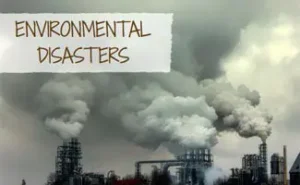
Description: Alternative to Neoliberal Economics
Dive into the critical analysis of neoliberalism and discover an alternative to neoliberal economics that is sustainable for a fairer economic future.
Introduction
In recent decades, neoliberal economics has shaped global policies under the assumption that market freedoms for the wealthy translate into economic benefits for all. This perspective, however, has faced increasing scrutiny as it worsens disparities in wealth, damage the environment, and fragment societies. This article critically examines the impacts of neoliberalism and investigates alternative economic frameworks that promise a more fair and sustainable future.
Understanding the Downfalls of Neoliberal Economics
Economic Inequality
Neoliberalism’s primary failure lies in its creation and perpetuation of economic inequality. By deregulating markets and reducing governmental oversight, this economic model has enabled the affluent to accumulate vast wealth while the majority struggle. The belief in trickle-down economics—where benefits given to the wealthy will eventually make their way to the poor—has not materialized in practice. Instead, the wealth gap continues to widen, with billionaires’ fortunes increasing, while millions can barely afford basic living costs.
Environmental Impact

Unregulated economic activity has also led to significant environmental degradation. The neoliberal emphasis on growth and profit maximization encourages companies to deplete natural resources faster than they can be replenished. This approach contributes to deforestation, water scarcity, loss of biodiversity, and high carbon emissions, which are key drivers behind climate change and ecological collapse.
Social Implications
Neoliberal policies have not only prioritized profit over people but have also led to significant social consequences that affect the fabric of society. The push for privatization and reduced public spending under neoliberalism has seen essential services like healthcare, education, and social security become increasingly commodified. This shift often results in higher costs and lower accessibility for the general population, particularly affecting low-income families who rely on these services the most.
Moreover, the erosion of workers’ rights is a direct outcome of neoliberal policies that favour flexibility for employers at the expense of job security and benefits for employees. Labour markets have become more fragmented, with a rise in part-time, temporary, and gig employment that typically offers lower wages, fewer benefits, and little to no job security. This precarious employment landscape contributes to economic instability for many workers, making it difficult to plan or invest in personal and professional development.
Neoliberalism’s emphasis on individual responsibility rather than collective welfare has also led to stigmatization and marginalization of the unemployed and the poor, who are often portrayed as lacking the effort or motivation to improve their own circumstances. This societal attitude overlooks systemic issues like inadequate education systems, persistent discrimination, and the uneven distribution of opportunities that significantly influence an individual’s ability to succeed.
Social divisions are further worsened by neoliberal policies through the weakening of unions and collective bargaining rights. Unions have traditionally played a crucial role in promoting fairness in the workplace, including advocating for fair wages, safe working conditions, and reasonable work hours. However, the decline in union power and membership has left many workers vulnerable to exploitation and has widened the gap between the rich and the poor.
The consequences of such policies extend beyond economic disparities to affect community cohesion and individual well-being. Increased social stratification can lead to heightened tensions and reduced social mobility, creating a cycle of poverty and disenfranchisement that can persist across generations. The breakdown of community bonds and a decrease in civic participation are further indicators of the societal impact of neoliberal principles, which prioritize market values over human and social values.
Addressing these deep-seated issues requires a shift towards policies that value social equity and community well-being as much as economic efficiency. Enhancing the social fabric of society involves not only changing economic policies but also fostering a culture that values solidarity, supports collective solutions, and recognizes the dignity and worth of every individual.
The Vision for a Sustainable and Equitable System
Embracing Sustainable Development
For an economic system to be sustainable, it must incorporate ecological concerns into its core, prioritizing long-term resource management over short-term profits. This includes adopting practices that reduce environmental footprints, like using renewable energy sources, and designing products with longer life cycles to minimize waste.
Championing Economic Justice
Economic justice involves restructuring the economy to ensure fair distribution of resources and opportunities. This could be achieved through progressive taxation, higher minimum wages, and stronger social security systems that redistribute wealth more effectively and reduce the risk of poverty among the most vulnerable populations.
Ensuring Robust Social Safety Nets
A key element of fair economics is the assurance that all citizens have access to essential services. Governments should ensure that investments in public services like healthcare, education, and housing are adequate and that these services are not compromised by the profit motives of private entities.
Promoting Participatory Democracy

Increasing direct participation in economic decision-making can help tailor economic policies to better meet the needs of the populace. This could involve more substantial roles for community cooperatives in local governance, and mechanisms for workers to have a say in the management of businesses.
Steps Towards a New Economic Paradigm
Regulating Markets
Introducing stricter regulations in financial markets and industries can prevent exploitative practices and ensure fairer distribution of corporate profits. This includes implementing anti-monopoly laws, protecting consumers, and ensuring corporate accountability for social and environmental impacts.
Investing in Green Technologies
A transition to a sustainable economy requires significant investment in green technologies. This includes funding for renewable energy projects, subsidies for electric vehicles, and incentives for businesses to improve their environmental standards.
Rethinking Economic Growth
Shifting the focus from GDP growth to well-being and sustainability indicators involves redefining what constitutes economic success. Policies should aim to improve quality of life and well-being rather than merely increasing material wealth.
Strengthening Global Cooperation
To tackle global challenges like climate change, poverty, and inequality, there needs to be a concerted effort to strengthen international cooperation. This includes enforcing global financial regulations, collaborating on environmental initiatives, and fostering economic policies that promote global stability and fairness.
Conclusion and Call to Action
As we have seen, the neoliberal economic model has significant shortcomings that need a rethinking of economic priorities and practices. By shifting towards an alternative to neoliberal economics that emphasize sustainability, equity, and collective well-being, we can aim for a system that benefits more than just the economic elite. Share this analysis and join conversations on these crucial issues. Let’s advocate together for a fairer economic system!
Share This Article
Help spread the need for a change in our economic paradigms by sharing this article with your friends and on social media to contribute to the discussion.
References:
Inclusive growth: https://www.oecd.org/inclusive-growth/
Inclusive growth in Australia: https://www.taylorfrancis.com/books/edit/10.4324/9781003116080/inclusive-growth-australia-john-buchanan
Sustainable and inclusive growth: Australian starter pack: https://asialink.unimelb.edu.au/asialink-dialogues-and-applied-research/emerging-voices/sustainable-and-inclusive-growth-australian-starter-pack
Inequality on Steroids: https://australiainstitute.org.au/wp-content/uploads/2023/04/Inequality-on-Steroids-Who-Benefits-From-Economic-Growth-in-Australia-WEB511-copy.pdf
How do you define an inclusive economy: https://www.aspeninstitute.org/blog-posts/how-do-you-define-an-inclusive-economy/
